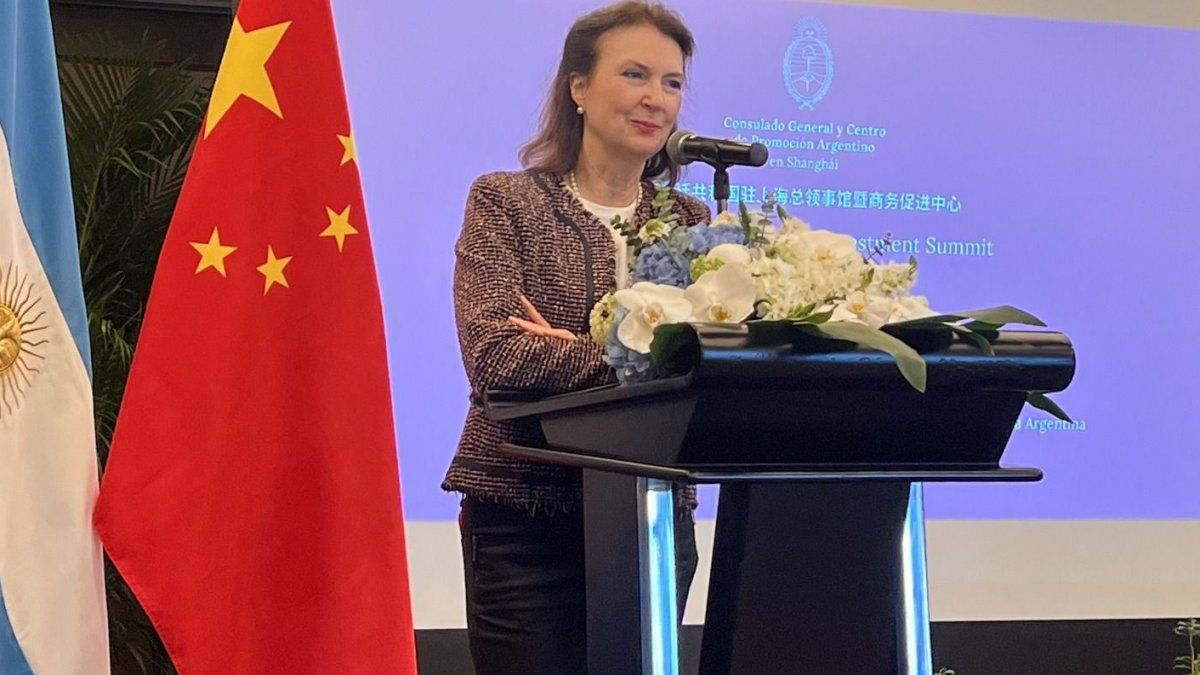The worst side of the shortage of reserves is that not only did it again agree to extend the swap through precise work by the economic team, but also that President Milei will travel to China to hold a bilateral meeting with the communist leader Xi Jinping.
“Not only am I not going to do business with China, I am not going to do business with any communist” (…) “I am a defender of freedom, peace and democracy. “The Chinese don’t go in there.” These phrases were spoken by Javier Milei before assuming the presidency in an interview with Tucker Carlson that had resonated throughout much of the world. This demonstration of non-alignment was a novelty for Argentina, understood not from a geopolitical point of view but from an economic one. This block of “communist countries” are, among others, the country’s two main trading partners: China and Brazil, in addition to being the main creditors in terms of international trade balance, with -9,225 million dollars and -5,475 million dollars of deficit respectively.
The content you want to access is exclusive to subscribers.
Stopping exporting 17 billion dollars as we do to these two nations due to political ideology would have been one of the worst mistakes in economic matters, especially because of how closed global markets are in terms of income mainly from raw materials, especially soybeans. and wheat. The outline of needs of the historic Argentine agro-export model requires a series of strategic alliances that allow more than 20% of exports to be placed with actors who do not have problems in social-environmental matters and receive these products constantly. China, in 2023, received 1,253 million dollars in Soybeans while another communist country such as Vietnam received 1,088 million dollars in soybeans and just over 800 million in Corn exports.


Leaving China aside would only initially represent an almost immediate payment of US$ 4.9 billion for the swap, a kind of loan from the People’s Bank of China (BPOC), while the necessary foreign currency to meet the requirements of the circuit is scarce. importer, but also within the monetary flank because we would have negative net reserves again, after so much effort and work by the monetary authority. Obviously one cannot be naive about this matter: while China represents something minuscule in its active policy in the region, Argentina subsumes itself in the need and would pay 6.1 points annually to sustain this credit, since it is estimated that what it pays the country is 400 basis points above the 1-year Shibor rate – average rate of 18 Chinese banks – which currently stands at 2.1%.
The worst side of the shortage of reserves is that not only did it again agree to extend the swap through precise work by the economic team, but also that President Milei will travel to China to hold a bilateral meeting with the communist leader Xi Jinping. Do we imagine him asking for democratic elections, the liberation of enslaved Uyghurs, or will we see him closer to cordial treatment? Clearly the possibility of increasing the trade flow that last year resulted in exports of just 5.27 billion against almost 14.5 billion in imports makes us think that we will see it in a conciliatory plan and that is what this historical complex demands.
We can even expect that the date of arrival in the Asian giant will be July 4, North American Independence Day, the most important moment of what is called “the free world”, totally contrary to what the communist regime proclaims.
In this regard, the pragmatism of Foreign Minister Diana Mondino is key, who has made demonstrated efforts to sustain the country’s commercial network despite all the presidential verbiage. The conflict was not only with China: the chancellor had to activate the entire arsenal to disarm the tension with Colombia, rebuild the fruitful link that the current official Daniel Scioli had armed in Brazil and sought to relativize the exchange between our president and the Spanish president, Pedro Sánchez. All in just 6 months of management.
The external scenario is key: In 2023 Argentina registered a deficit in its Trade Balance of 6,928 million dollars, 1.1% of its GDP, which represents an important change given that the previous year it registered a surplus of 6,923 million dollars, 3.03% of GDP. Much of what can happen in social and structural terms of the country depends on a sustained external surplus.
By virtue of recovering this positivity of foreign trade, it is vital for the health of the local macro to promote exports and stop thinking about “living with what is ours” that generates a strong delay in several aspects, especially in technology, the communicational and the salary. An internal market economy in the long run brings lower salaries in hard currency – free dollars -, more poverty, permanent problems with the provision of goods and services necessary for productivity and extinction of savings.
For this reason, I consider the application of pragmatism to be essential to leave ideological differences with other leaders in public declamations – which I hope will become less and less frequent – and generate broader markets, complementary to our needs, bringing added value that will allow us to grow over time. in a sustained manner.
Source: Ambito
David William is a talented author who has made a name for himself in the world of writing. He is a professional author who writes on a wide range of topics, from general interest to opinion news. David is currently working as a writer at 24 hours worlds where he brings his unique perspective and in-depth research to his articles, making them both informative and engaging.




